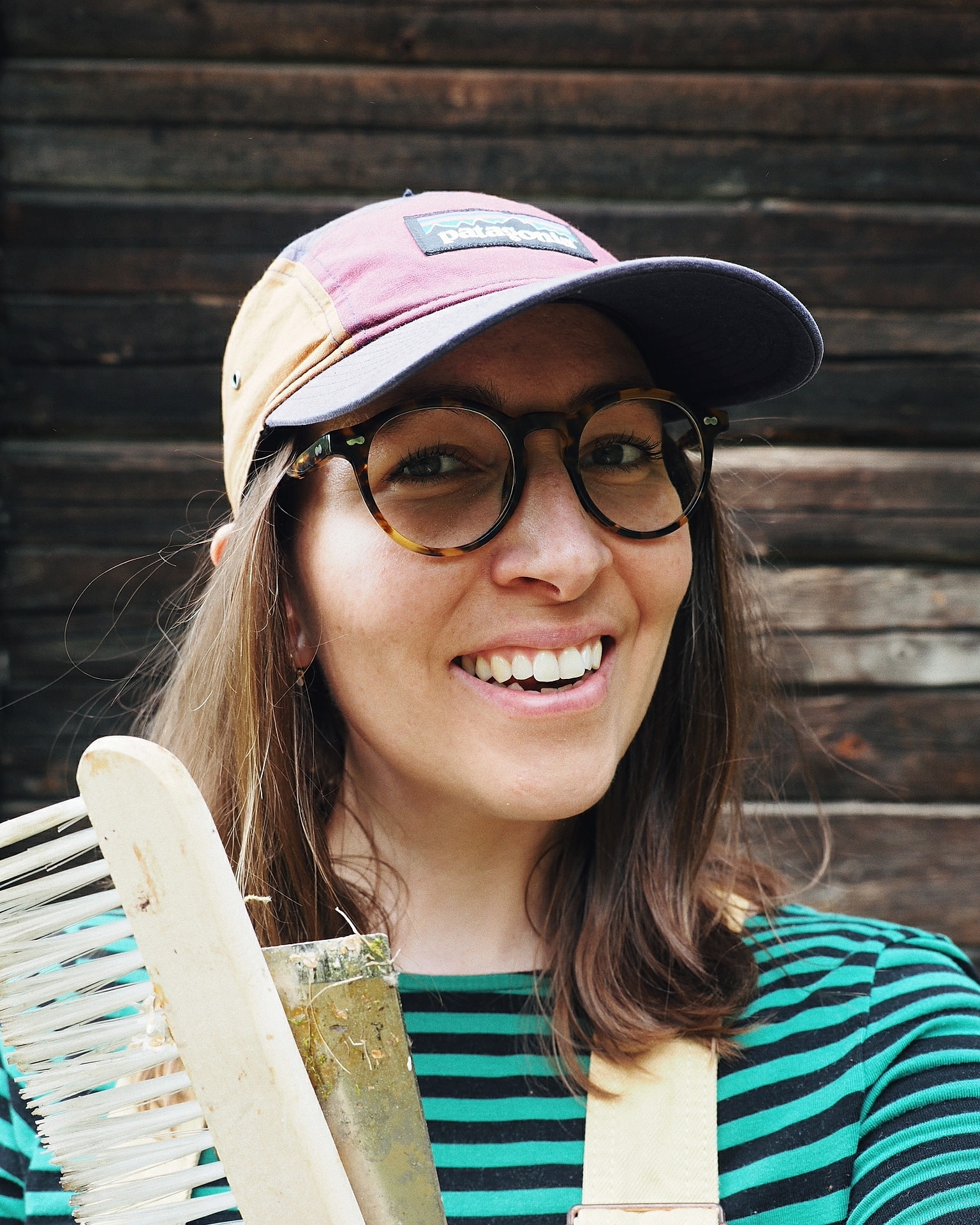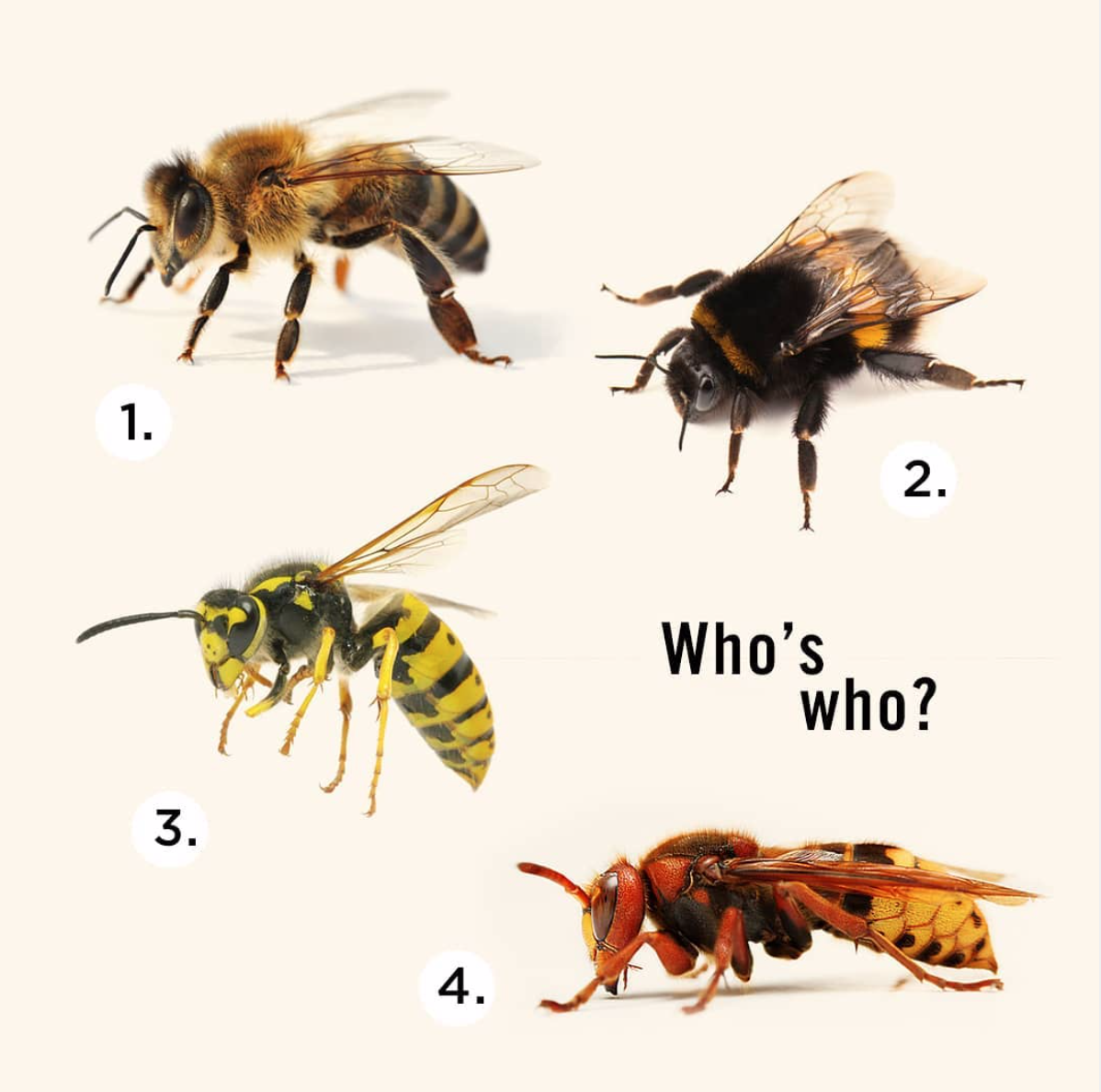MY BFF IS A BEEKEEPER
Meet Elisa Nordman, a long time friend of mine who is an avid hobby beekeeper from Helsinki with a passion for sustainability, green thinking and a deep appreciation for nature and our planet. She keeps her two hives at a farm outside of the city and produces artisan honey under the brand name Hunter House Honey. I sat down with Elisa and picked her brain about her super hipster, yet actually amazingly impressive side hustle that she’s been doing for a while as I felt the urge to to introduce this insanely cool save the bees- gal with my fellow internet scrolling audience. Here goes.
Q: Who are you?
A: I am Elisa. I currently work as a graphic designer and in my free time I love to get outdoors and spend time in nature, read a lot, do sports and then of course beekeeping.
Q: What made you take up beekeeping and become a bee-person?
A: In all honesty, it was actually half a coincidence as I stumbled across an ad in beekeeping at a Christmas fair in Helsinki (Tuomaan markkinat). It immediately caught my attention and I took a photo of the ad and then the next day I thought to myself, what the heck, why not. I signed up for the course online, without truly knowing if I would follow through or not. Fast forward 5 months and I found myself in a beekeepers farm shopping for the gear. Once I had all the necessary items, I knew I would have to buy the bees as well. Even though there initially was some slight hesitation, I’ve always been aware of the role the bees play in our eco system and how they are struggling and declining in numbers due to the pollution, harsh pesticides and changing weather patterns. Since a very young age I’ve always loved the flavour of honey, so that worked as one motive as well.
Q: How did you get your hives, did you buy them?
Learn the difference: 1. Honey bee 2. Bumble bee 3. Wasp 4. European Hornet
A: Yes, I bought my hives from a beekeeping shop and the bee colonies I bought straight from a beekeeper I was referenced to through the beekeeping course. The beekeeping community is a quite small and there are forums online where you can exchange knowledge and buy equipment from people within the industry. So basically all the bee colonies are bought from another beekeeper, you can not buy them from a shop, or at least not that I know of.
Q: How do you get started in beekeeping?
A: Well, in my opinion the only way to start is to participate in a course and learn the basics. The other option might be to have a mentor who walks you through the step by step process of starting your own colony. I still highly recommend participating in a course as it’s quiet complicated and you’ll get into the community easier and learn to know other people within the community.
Q: Most people do not react well to the sight of swarming bees, were you afraid of the bees when you first started out as a beekeeper?
A: No, I wasn’t afraid of bees. Bees are actually really calm and they don’t mind us people if we let them be(e) in peace. I’ve noticed that people can not distinguish the difference between bees and wasps and most people easily mistake wasps for bees or vice versa. To clarify and in case you were unsure, bees and wasps serve different purposes in nature. Bees pollinate our food, our plants and produce honey, whereas wasps eat pests from flowers and plants, but their pollination value is lesser than their hairy cousins. I think it’s only relevant to be afraid if you know that you’re very allergic to the stings.
Q: Do beekeepers get stung by bees?
A: Yes of course, however not very often. I’ve only been stung while beekeeping less than 10 times through my gloves and suite. The stinger has not been able to penetrate my skin properly as I am always wearing my protective suite.
Q: As a beekeeper, do you become more sensitive or more in tuned to nature?
A: For sure. I’ve always been a nature lover, but now after beekeeping you have to pay more attention to the weather, to the seasons and to the flora around you as it all affects the bees and their behaviour. This is actually the part that I’ve enjoyed the most and it’s been very fulfilling to become more aware of my surroundings.
Q: What's the most fulfilling part of a beekeeper's job?
A: I’d have to say that the most fulfilling part of this job is to actually get to know your bees and to learn how to work with them as honey bees are not wild bees, even though they are free to fly, come and go as they wish. Honey bees need our help and I try my best to read their signals and their behaviour to my best ability and make the right decisions in being their caretaker. As an example, I need to prevent mites from invading the hives and when the season has ended it’s my job to feed the bees and prepare the hive for the winter.
Q: How long does a bee live?
A: On average a worker bee lives 40-50 days. A queen bee usually has a lifespan of 4-8 years.
Q: How much time does it take to take care of your hives?
A: Holy moly, it takes quite a lot of time. The general rule is to visit your hive every nine days, but usually I go there once a week. You never know what to expect, so it’s hard to know in advance wether you’ll end up spending an hour or five tending to your hive with each visit. In July I take a little more free time to myself as this time is usually the time the bees are collecting honey and you can actually let them be. That being said, this is not set in stone as it also depends on the weather. Many professional beekeepers are so good at reading the signs of nature that they can visit their hives according to weather (meaning less times), but I am not there yet personally.
Q: What has been the most surprising aspect about beekeeping?
A: The complexity of a bee colony. The system is totally astonishing and I am continuously learning more by each visit. For example, did you know that the queen is not the ruler in the hive, but the worker bees are. The worker bees make all the decisions collectively so if they see that the queen is not laying enough eggs, they will start to make a new queen bee by starting to feed an egg with royal gel.
Q: What do you have to say to anyone who is interested in starting beekeeping?
A: Find a course in beekeeping and you will get a good start. After my first course I was still completely and utterly lost because at that time I didn’t have my own hive yet as all the information was only theoretical. Slowly and after my first summer in beekeeping I took another advanced course in and finally things started making more sense to me. Just like with any new skill or hobby, learning takes time, so be patient! In Finland there are great courses in Työväenopisto, so make sure to check in with them.
Q: How much honey do you get per season and is it difficult to collect the honey?
A: Last summer I got around 30 kg of honey from only one hive. This season I am not sure what to expect yet, since one of the hives is very weak after the winter and the other is strong, but there has been some issues with the queen. Honey collecting is hard work. Firstly, the hive boxes are extremely heavy and it’s quite challenging to pick them up from the hive tower and your body positions while doing the labor can end up being super uncomfortable. In addition to the hard physical work, the bees usually get pretty upset with me fiddling with their home (understandable) , which adds an extra challenge to the whole process. That being said, last summer was my very first time collecting the honey, so I am hoping for it to run a little smoother this year. Fingers crossed. The bees do not hibernate during the winter, instead they curl up keeping warm and eat sugar water that we feed them in the autumn.
Q: Where can we find out more information about beekeeping and your bee endeavours?
A: I have an instagram account @beetvsuomi , where I share videos and posts about my beekeeping. I sell the honey after the summer and I have my small artisan label called Hunter House Honey.
Q: Any further plans for Hunter House Honey?
A: Not currently, my aim is to keep beekeeping and learning more as I go. I wish to spread awareness about bees and their importance to us humans.
Q: Tell us something weird about yourself?
A: I am extremely organised and well prepared when it comes to packing and my friends always make fun of me when we go on trips together, but I always have something they end up needing. I have issues with jello-like food textures and can not eat anything wobbly, slimy nor spongy, such as eggs, tofu or creme brûlée. Wherever I go I always make sure to check out the nearest exit route and I am passionate about whales. I have a degree in prosthetics & orthotics (prostatic legs.) I’ll just leave it at the list could go on for a while…
Q: Favorite quote?
A: I am bad with quotes but I guess you can’t go wrong with ”Always smile more than you cry, give more than you take and love more than you hate”.
Below an episode of BeeTv. Enjoy!
Thanks Elisa!
So long honey,
Evita





